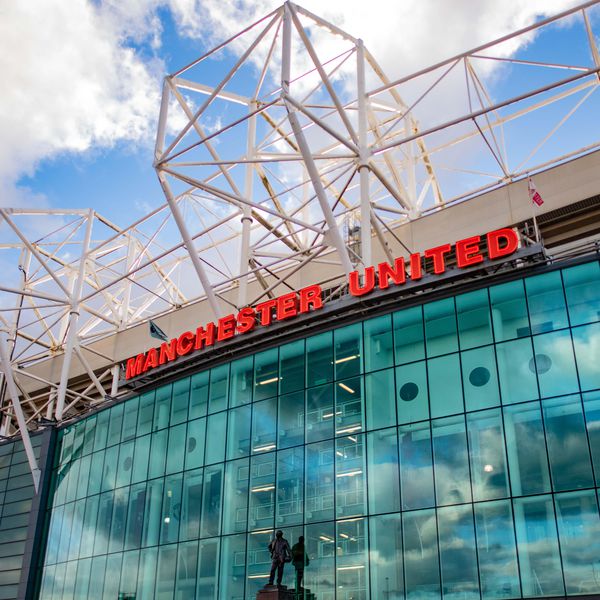Duncan Edwards: The world's first total footballer
It was 66 years ago today when Duncan Edwards played his last match on English soil, a remarkable 5-4 thriller against Arsenal. Here we pay tribute to a player, team-mate and timeless Reds icon…
What made Duncan Edwards great was not the power of his shooting or the accuracy of his passing. Nor was it his strength in the tackle, ability to win the ball in the air, or even the extraordinary speed that enabled his 13-and-a-half-stone frame to glide from one end of the field to the other, seemingly without leaving a footprint.
What made Edwards great was his ability to string all these skills together, often in a single passage of play, minute after minute, week after week, game after game. Twenty years before the concept was even a twinkle in the Dutch coach Rinus Michels' eye, in Edwards, United had the world's first 'total footballer'.
Forever remembered
On the 66th anniversary, we take a glimpse at the lives of the players tragically killed in the Munich Air Disaster...
Busby had pulled out all the stops to secure the talents of the schoolboy from the Black Country. Duncan was up for grabs in 1952, fresh from a series of compelling exploits with England Schoolboys, every major club in the land desperate to acquire his services. The hot favourites to sign him were Wolverhampton Wanderers, a burgeoning power in the game under the iron-fisted guidance of manager Stan Cullis and whose Molineux headquarters were only half a dozen miles up the road from the Edwards home.
But Busby, who had boldly opted to stake United’s future on a refreshing youth policy, was acutely aware that there was no more precious youngster in Britain than Duncan. Accordingly, the Old Trafford boss made his move and drove south through the night, rousing the 15-year-old from his slumbers and convincing him to put pen to paper in the early hours of his 16th birthday, the first of October that year.
Though he operated mostly as a left-half, Edwards was comfortable just about anywhere. He could be United's toughest defender, and when required in attack he was a devastating forward. “In Duncan Edwards, I believe I have the greatest footballer in the world,” said Busby in 1957. “John Charles is bigger and has all the skills; Alfredo Di Stefano is a mature artist. But Duncan can play anywhere without question and do a great job – he always wants to be involved.”
During five years as a professional at Old Trafford, Edwards was involved in 175 league and Cup matches, scoring 21 goals, winning two titles and an FA Cup. The Munich air crash – after which he clung to life for 15 days, amazing doctors with his stamina and tenacity – robbed us of a precious talent. Those who saw him feel he could have been one of the game's most-decorated players. Jimmy Murphy, assistant manager and unofficial minder of Busby's Babes, said Edwards was worth half a team alone. So, how did it feel to play alongside him, to have a 40-yard cross-field pass land on your toe or experience the tremor as a 50-50 battle for possession ended with him once more, emerging barrel-chested and imperious, ball at his feet? According to Sir Bobby Charlton, it was pretty good.
Edwards helped United to three successive FA Youth Cup victories between 1953 and 1955 and, even when established in Busby's first team, jumped at every chance he got to play with his old pals. In the first leg of United's FA Youth Cup semi-final against Chelsea in 1955, Murphy included Edwards, but urged his players not to rely on him too heavily. At half-time, 1-0 down, Murphy told them to get the ball to Edwards every chance they got: he scored twice in the eventual 2-1 win.
Though every United player of the era was grateful to have him on their side, even a talent like Charlton was awestruck. “Duncan didn't set out to make anyone feel inferior, but that's the effect he had upon me. I couldn't imagine ever being as good as he was.”
Duncan Edwards led a simple existence. Football was his life. He enjoyed fishing and the company of his friends (mostly team-mates), but was not a regular in the pubs and clubs. His most notorious misdemeanour, aside from the occasional booking, was a 10 shilling-fine for riding his bicycle without lights a crime for which he was docked two weeks' wages! His greatest extravagance was a car (which, tragically, he never got to drive) and his idea of a big night out was a trip to the cinema and a fish-and-chip supper.
He was a gifted player, and knew it, but Edwards' monster talent did not fuel a similarly-sized ego. “He was arrogant, but not in an objectionable way,” Charlton recalled in 1984. “It was just that he knew he was a great player. There was no conceit in Duncan, but no question marks in his mind either. He didn't have to be told he was the top man.”
The Busby Babes' final game in England
ArticleOn this day in 1958, United won a remarkable match in North London.
Edwards inspired fans, too. On matchdays hordes of autograph hunters loitered outside the ticket office. After securing his bicycle to a drainpipe with string, Edwards would corral his admirers into a line, signing dutifully one by one. Even today, fans make pilgrimages to his grave at Dudley cemetery.
“Edwards had an interesting effect on those who watched him,” wrote Maurice Edelston and Terence Delaney in the 1960 classic book, Masters of Soccer. “Perhaps it was with his youth and energy that he represented the fulfilment of our secret wishes; he was so vigorous and matter-of-fact he made anything seem possible.”




